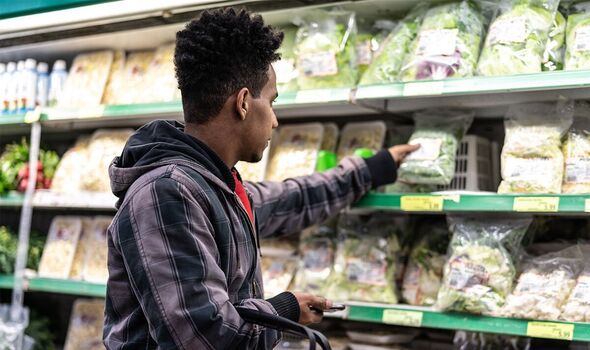
FSA 'UNSURE' IF DIARRHOEA BUG FOUND IN PRE-WASHED SUPERMARKET VEGETABLES WILL CAUSE HARM
Experts have issued an urgent warning as a nasty bug that can cause "deeply unpleasant" symptoms such as severe diarrhoea and vomiting has been detected in pre-washed vegetables from supermarkets.
Researchers from the University of Kent's School of Biosciences discovered cryptosporidium in more than half of food samples. Cryptosporidium is a tiny parasite that lives in the intestines of infected humans and animals.
It is passed out in their poo and can then spread and contaminate water sources like lakes, rivers, and swimming pools, as well as food like raw milk and vegetables.
People who come into contact with the bug can develop cryptosporidiosis, an illness that typically lasts around two weeks.
According to the UK Health Security Agency (UKHSA), the symptoms of cryptosporidiosis are "deeply unpleasant" and include severe watery diarrhoea, vomiting, stomach cramps, nausea, fever, and loss of appetite.
However, in a statement provided to Express.co.uk, the Food Standards Agency said it was not clear if the bug found in pre-washed supermarket vegetables would cause harm to humans.
The water-borne and food-borne parasite cryptosporidium recently made headlines after it was found in drinking water in parts of Devon.
In their research, which was published in Parasitology Research journal, it was found in more than 50 percent of samples of pre-washed vegetables bought from supermarkets in Kent.
Dr Anastasios Tsaousis, reader in molecular and evolutionary parasitology at the University of Kent's School of Biosciences led the research.
He said that 58 percent of pre-washed salad pack samples were PCR-positive for cryptosporidium.
While pre-washed and ready-to-eat vegetables undergo more thorough washing with water containing chlorine disinfectants compared to unpackaged vegetables, cryptosporidium particles (oocysts) are actually resistant to disinfection with chlorine and can only be reliably removed by boiling water or filtration.
So, they are expected to be free from parasites and ready to eat straight from the packaging, but some oocysts remain and are likely to cause illness.
Dr Tsaousis explained: "The presence of cryptosporidium in pre-washed vegetables could mean revisiting the sanitation methods employed by suppliers along the chain of production such as improved hygiene measures during harvesting, processing, packaging, transportation and storage.
"There is also a need for increased awareness among consumers on the adequate storage of vegetables and handwashing before eating."
But speaking to Express.co.uk, Dr James Cooper, deputy director of Food Policy at the FSA, said it wasn't clear whether the bug would actually cause harm.
"Cryptosporidium is more usually picked up from swimming in or drinking contaminated water, but occasionally you can get ill from contaminated food, including unwashed or unpeeled vegetables," he said.
"This small scale study will add to our evidence on food safety, but the method used in the research can't tell us if the levels of cryptosporidium found is alive and may cause illness, or is inert and harmless for consumers.
F"ood businesses should have processes in place to help ensure the food they sell is safe, and the packet instructions should be clear on whether the product has been pre-washed or not to wash the salad. If there are products for sale that are unsafe we will take action so consumers are protected."
Who is most at risk?
The UKHSA says that anyone can catch cryptosporidiosis.
However, it is "particularly common" in children between one and five years old.
Other groups at high risk of catching the bug include people working with farm animals or contaminated water, those changing nappies, or travelling to countries with poor sanitation.
"It can cause serious illness in those of any age with weakened immune systems," the UKHSA says.
You get infected by touching infected poo and then putting your unwashed hands near your mouth.
You can also get it by swallowing contaminated water while swimming or drinking untreated water.
Sometimes contaminated food like unwashed vegetables or raw milk can pass on the parasite too.
The UKHSA recommends the following steps to prevent becoming ill:
- Wash hands frequently with soap and warm water, especially before eating, after going to the toilet, and after contact with pets/animals
- Wash and peel all fruits and vegetables
- Avoid drinking untreated water
- Don't swallow swimming pool or lake water
- Be careful with handwashing after any animal contact on farms
- Stay home from work/school until 48 hours after symptoms stop.
It adds: "In the unusual case of an outbreak affecting UK drinking water, follow the advice of the local water company, which will usually involve boiling water to be used for drinking, cooking, preparing food or brushing teeth."
2024-06-18T09:40:31Z dg43tfdfdgfd